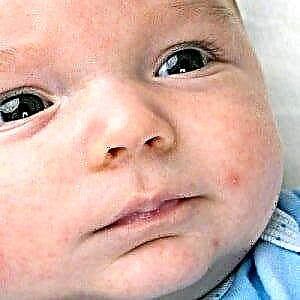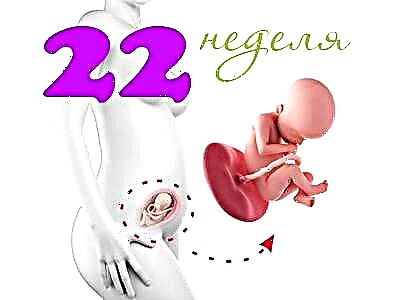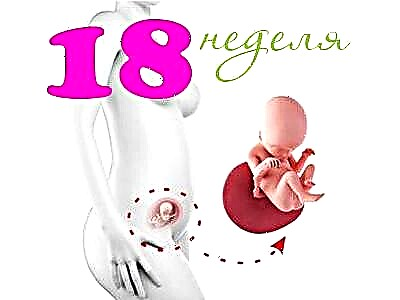The vaccination process itself is inextricably linked with the work of immunity. And immunity is a complex thing to understand, overgrown with myths, contradictions and delusions.
And in order to answer this seemingly simple question, put forward in the title of the article, you need to navigate in the basic concepts that relate to vaccinations and their effect on the immunity and the child's body as a whole.
What is vaccination? Types of vaccines
Vaccination is a way of acquiring active immunity to certain diseases by introducing special drugs into the body - vaccines.
 Vaccinations are the main method of disease management, which can radically affect the epidemic process, making the disease manageable.
Vaccinations are the main method of disease management, which can radically affect the epidemic process, making the disease manageable.
Vaccines have neutralized smallpox and significantly reduced morbidity and mortality from diseases such as measles, diphtheria and whooping cough.
What happens in the body after receiving the vaccine? Immunity begins to react by producing protective factors - antibodies. They can be found within a few weeks. Then, within a month, their number grows, reaches its maximum and begins to decline.
To protect against bacterial infections, a series of three injections is made with an interval of at least a month.
For greater stability and effectiveness of the immune defense, revaccination is carried out, as a result of which the level of antibodies rises rapidly and remains at the proper level for a certain number of years.
Currently applied the following types of vaccines:
- live vaccines. Made on the basis of live weakened microorganisms. These include: tuberculosis vaccine (BCG), oral polio vaccine, live measles, mumps and rubella vaccines. In most of the countries on this list, only BCG is used;
- killed vaccines. Obtained by neutralizing pathogens. These are inactivated poliomyelitis vaccine (IPV) and pertussis vaccine, which is part of the DTP polyvaccine;
- vaccines obtained as a result of genetically engineered synthesis. These are hepatitis B vaccines;
- toxoid. Obtained by neutralizing pathogen toxins. This mainly occurs when formalin is used as a detoxifying agent. This is how the tetanus and diphtheria components of DPT are obtained;
- polyvaccines. With their help, vaccination is carried out against several pathogens at once. This results in a decrease in the number of injections. Examples are: DTP (vaccination against whooping cough, diphtheria, tetanus), Tetracoc (against whooping cough, diphtheria, tetanus and polio), Priorix or MMR (against measles, rubella and mumps).
Each country has a national vaccination schedule, on the basis of which an individual vaccination plan for children and adults is drawn up. It can change over time or with the development and registration of new vaccines.
Basically, they are currently vaccinated against the following diseases: tuberculosis, hepatitis B, whooping cough, tetanus, diphtheria, poliomyelitis, measles, rubella, mumps, hemophilic infection.
The vaccines are free, but in most cases there is a commercial equivalent that parents can purchase for their money. In many countries, and some now in Russia, the calendar includes vaccinations against Haemophilus influenzae, vaccines have been developed against hepatitis A, rotavirus infection, chickenpox and pneumococcal infection.
In addition to routine preventive vaccinations, there are vaccines that are used for epidemic indications. These include vaccinations for influenza, rabies, yellow fever, typhoid fever, plague, and cholera.
Find out about when and how the vaccination against a disease such as whooping cough in children is given from the material of the pediatrician.
The specialist tells about whether it is possible to prevent mumps in children with the help of preventive vaccination.
Contraindications to vaccinations
Before vaccination, the doctor will without fail examine the child and ask the parent about concomitant diseases, reactions to the previous vaccination, and possible allergies. In cases of contraindications, a medical withdrawal is given.
 It can be one month or several, and maybe a year. If necessary, the child is sent for tests or specialist consultations.
It can be one month or several, and maybe a year. If necessary, the child is sent for tests or specialist consultations.
A medical treatment is a serious thing. Especially if it is quite long. After all, this disrupts the previously thought out process of immunization. Antibodies are produced, but their concentration may not be sufficient for adequate and long-term protection.
Contraindications are temporary and permanent (absolute), to all vaccines or to some specific.
Absolute contraindications:
- severe reaction or complication to a previous vaccination;
- for all live vaccines: pregnancy, immunodeficiency, neoplasms;
- for BCG vaccine: newborn body weight less than 2000 g;
- for rubella vaccine - anaphylactic reaction to aminoglycosides;
- for whooping cough vaccine: afebrile seizures in the past, progressive diseases of the nervous system;
- for hepatitis B vaccine, yeast allergy.
Temporary contraindications:
- acute respiratory infection with an increase in body temperature;
- intestinal infection;
- exacerbation or decompensation of a chronic disease.
Over the past twenty years, the list of contraindications has decreased significantly. According to the results of studies and observations, there were no more complications. But children's health has not changed for the better either.
There is always a risk group - children with certain comorbidities. These can be heart defects, hereditary diseases, allergies, anemia, encephalopathy or dysbiosis. At the moment, they are false contraindications. These children are actively vaccinated.
But a competent doctor always treats such children with the highest attention, because vaccination is a rather complex process that significantly affects the child's body. And the reaction can be difficult to predict.
These children need some preparation before vaccination, which you should definitely ask your doctor about. It is also useful to prepare practically healthy children for this procedure.
Preparation for vaccination
In order for everything to go as successfully as possible, a number of conditions must be observed.
- The health status of the child.The kid must be healthy on the eve of the procedure.
And not only according to the doctor's assessment. It happens that there are no obvious symptoms, but the mother says that something is wrong with the child. Maybe he ate a little worse or behaved more restlessly, slept less than usual.

This may be the first sign of an illness. And, of course, the temperature should be normal, no rash, no catarrhal phenomena in the form of a runny nose or cough.
If there is a tendency to constipation, be sure to adjust the stool (with lactulose, for example).
If the child is prone to allergies, it is advisable to start taking a calcium supplement and an antihistamine a few days before the vaccination. The duration of the appointment depends on the appointment of your doctor. On average, it is five days.
- Do not heavily feed your baby before vaccination. It will be better if he is slightly hungry.
- On the day of vaccination do not plan long visits to specialist doctors. We went to our doctor, received, after his examination, admission to vaccination, vaccinated, waited half an hour in front of the office. And home. An extra hour in line under other offices greatly increases the risk of catching some kind of infection from a nearby child.
- After vaccination, sit for 30 minutes in front of the vaccination room. In case of an allergic reaction, contact him immediately. It is advisable to walk somewhere nearby after another hour.
When you return home, take your time to feed your baby. Be sure to give a drink of water or fruit drink. In the next few days, give to eat according to appetite and drink abundantly. You can bathe the next day. Be sure to walk.
Prevent your child from overheating, ventilate his room more often and do wet cleaning daily. Limit contact with other children for a few days.
Very often, after the vaccination, the baby shows signs of malaise, the temperature rises, and there may be slight redness at the injection site. This is not a complication. This is a post-vaccination immune response. Antibodies begin to be produced. If you have a fever, give your child ibuprofen or paracetamol and put a candle on at night. This usually goes away in a few days.
The next day, the nurse or doctor must inquire about the health of the baby. But, if something bothers you, do not wait, immediately seek help.
Post-vaccination complications
It is extremely rare, but it happens. And it is very important for parents to know when to sound the alarm:
- local complications... They manifest as inflammation at the injection site. The skin is hot, swollen, reddened to the touch, painful to touch.
Such infiltration can further develop into an abscess or even erysipelas. It occurs as a result of a violation of the technique of the procedure and the rules of asepsis;
- severe allergic reactions. It is very serious. When they occur, the account goes on for minutes. They can develop within 24 hours after vaccination, and anaphylactic shock in the first hours.
Monitor your child closely. At the first complaints of itching, shortness of breath, pallor, swelling of the skin and deeper layers - seek immediate medical attention.
 That is why it is advisable to be near the clinic for the first few hours;
That is why it is advisable to be near the clinic for the first few hours;
- convulsions and lesions of the nervous system (encephalitis, meningitis, neuritis and polyneuritis). In most cases, it is provoked by the DPT vaccine. Most often, they do not appear out of the blue.
The child may have a history of encephalopathy or other disturbances in the functioning of the central nervous system;
- vaccine-associated poliomyelitis. Occurs after vaccination with a live oral vaccine - OPV.
To date, most countries have removed the vaccine from their national immunization schedules, leaving IPV, an inactivated polio vaccine. It is injected intramuscularly and in most cases does not bring trouble;
- generalized infection after the administration of the BCG vaccine - in the form of osteomyelitis and osteitis. The description of these complications, of course, inspires anxiety and fear of vaccinations in many parents.
A fever alone in a three-month-old child within a few days after DPT vaccination can cause subsequent refusals, not to mention more.
Many parents will say that they did not vaccinate their child, they didn’t get sick and didn’t "load" the baby's immunity. But this creates an unimmunized stratum in the child and adult population, which in the future may lead to an outbreak of an epidemic, as it was in the pre-vaccination era.
Yes, there is a risk during vaccination. But in each case it is different in size. A huge number of children are vaccinated daily. For the vast majority, everything goes smoothly. But, to our deepest regret, deaths also happen.
The news about them spreads at the speed of light through all sources of mass media, they are discussed in all details on the forums, and opponents of vaccination receive a new impetus to their struggle. Blame doctors, bad vaccines and the health care system in general ...
It is not my intention of this article to persuade your child to be vaccinated. This active prevention method has its pros and cons. Everything is very individual. But the risk of developing complications and death with a disease in an unvaccinated child is an order of magnitude higher than in a vaccinated one.
At the same time, if there is a concomitant pathology, be it allergic diseases, immunity disorders, hereditary diseases or a reaction to a previous vaccination, do not forget to tell the doctor in all the details, if he does not know about it.
You may need expert advice, additional tests. Be sure to follow all the appointments and recommendations of the doctor. Each time you give your consent before being vaccinated. And it is in your power to make it as informed and conscious as possible.
Be healthy!



